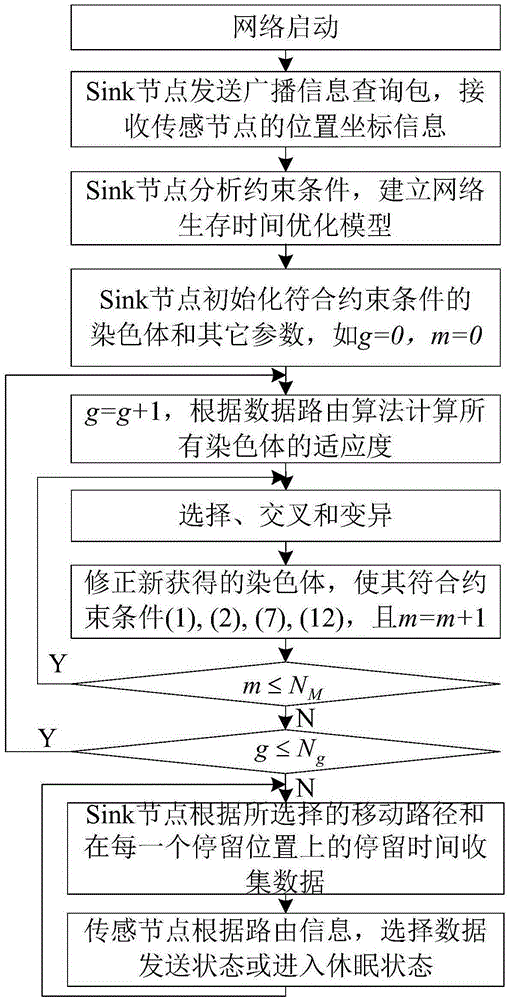Lifetime optimization method of mobile Sink-based wireless sensor network
A wireless sensor network and optimization method technology, applied in wireless communication, network topology, advanced technology, etc., can solve the problem that the data transmission delay of sensor nodes should not be too large, and the data transmission delay and hop count, data Lost and other issues
- Summary
- Abstract
- Description
- Claims
- Application Information
AI Technical Summary
Problems solved by technology
Method used
Image
Examples
Embodiment approach
[0075] 2) The Sink node analyzes the constraint conditions, and establishes a network lifetime optimization model with limited data transmission delay and hop count. The specific preferred implementation method of this step is as follows:
[0076]a1) Analyze data transmission delay constraints. In the actual wireless sensor network system, the data transmission delay is limited. According to the dwell time of the Sink node moving one round along the selected path and cannot be greater than the maximum allowable data transmission delay, the following formula is obtained
[0077] Σ p t p = t d e l a y - - - ( 1 )
[0078] Among them, t p Indicates the residence time of Sink on the grid center p, t delay...
PUM
 Login to View More
Login to View More Abstract
Description
Claims
Application Information
 Login to View More
Login to View More - R&D
- Intellectual Property
- Life Sciences
- Materials
- Tech Scout
- Unparalleled Data Quality
- Higher Quality Content
- 60% Fewer Hallucinations
Browse by: Latest US Patents, China's latest patents, Technical Efficacy Thesaurus, Application Domain, Technology Topic, Popular Technical Reports.
© 2025 PatSnap. All rights reserved.Legal|Privacy policy|Modern Slavery Act Transparency Statement|Sitemap|About US| Contact US: help@patsnap.com



